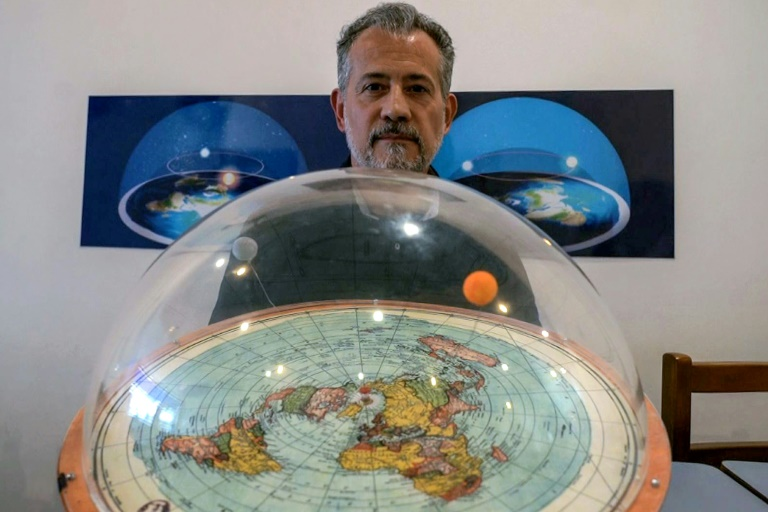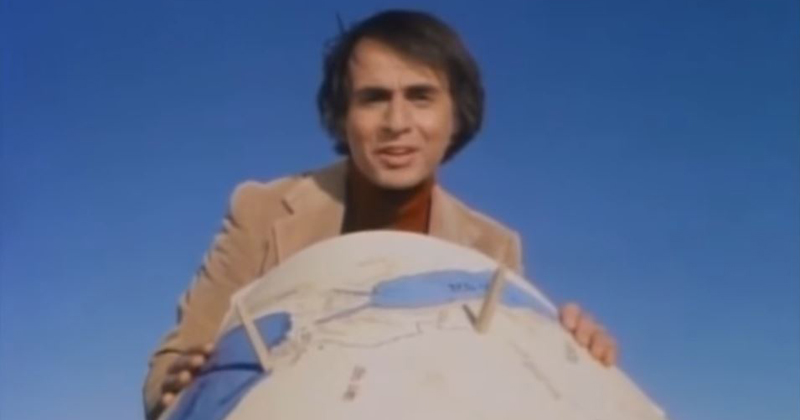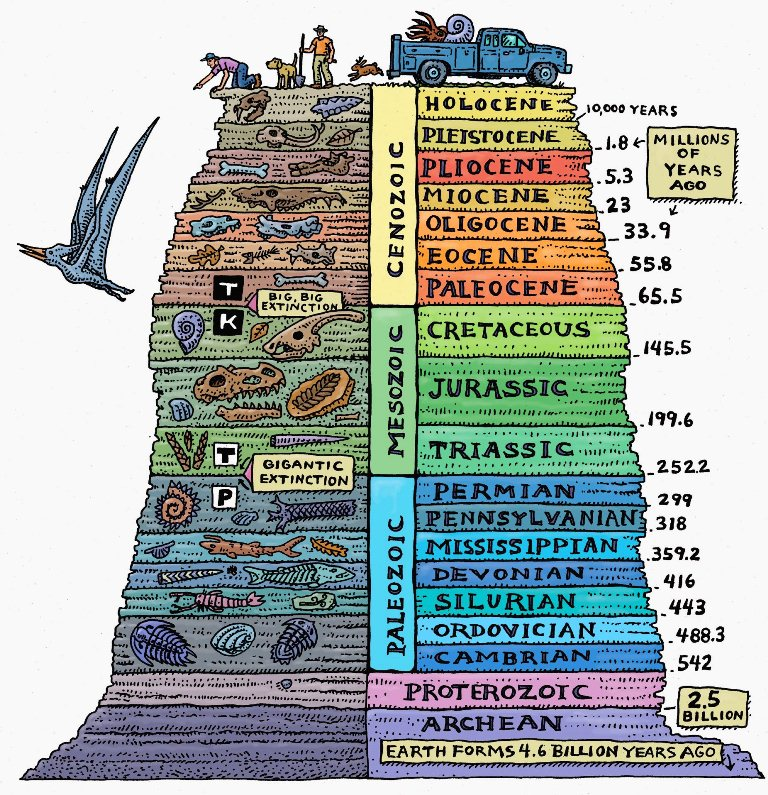Isaac Asimov& #39;s essay "The Relativity of Wrong" explains an important fact about Flat Earthers, evolution denialists and other anti-science denialist movements:
they& #39;re *very nearly* right.
A flat Earth would have curvature of 0, but the actual value is 0.000126 per mile.
they& #39;re *very nearly* right.
A flat Earth would have curvature of 0, but the actual value is 0.000126 per mile.
Measured on the small scale, the deviation from perfect flatness disappears in measurement error. The Earth is "very nearly" flat, from the perspective of our much smaller size.
It took some clever metrology for we little beings to measure the giant Earth& #39;s curve.
It took some clever metrology for we little beings to measure the giant Earth& #39;s curve.
The same is true of evolution and deep geological time: the rate of speciation, from our perspective, is *very nearly zero*.
That& #39;s why we can& #39;t use "common sense" to understand the natural world. It defies our common experiences to intuit from.
That& #39;s why we can& #39;t use "common sense" to understand the natural world. It defies our common experiences to intuit from.
What makes science so powerful is that, as a system, it challenges our common experiences, our assumptions and our lived experiences.
That tends to elicit disbelief, ridicule, even anger. The scientist seems to be saying ludicrous things, mocking reality.
Eppur si muove
That tends to elicit disbelief, ridicule, even anger. The scientist seems to be saying ludicrous things, mocking reality.
Eppur si muove
So we should *expect* the Internet to yield up "Plandemic"-like documentaries, which are simply an extension of this instinct.
What we cannot directly perceive we distrust (as in the curve of the Earth). We are hostile to what is not in our lived experience.
What we cannot directly perceive we distrust (as in the curve of the Earth). We are hostile to what is not in our lived experience.
Scientists will always be accused of deception from Galileo to Pasteur to Fauci, because they challenge assumptions under which we operate:
In this case, that the world is benign & safe & that disease agents don& #39;t emerge suddenly w/out malice or agenda.
It& #39;s *very nearly* true.
In this case, that the world is benign & safe & that disease agents don& #39;t emerge suddenly w/out malice or agenda.
It& #39;s *very nearly* true.
Asimov& #39;s essay:
https://chem.tufts.edu/AnswersInScience/RelativityofWrong.htm">https://chem.tufts.edu/AnswersIn...
https://chem.tufts.edu/AnswersInScience/RelativityofWrong.htm">https://chem.tufts.edu/AnswersIn...

 Read on Twitter
Read on Twitter







